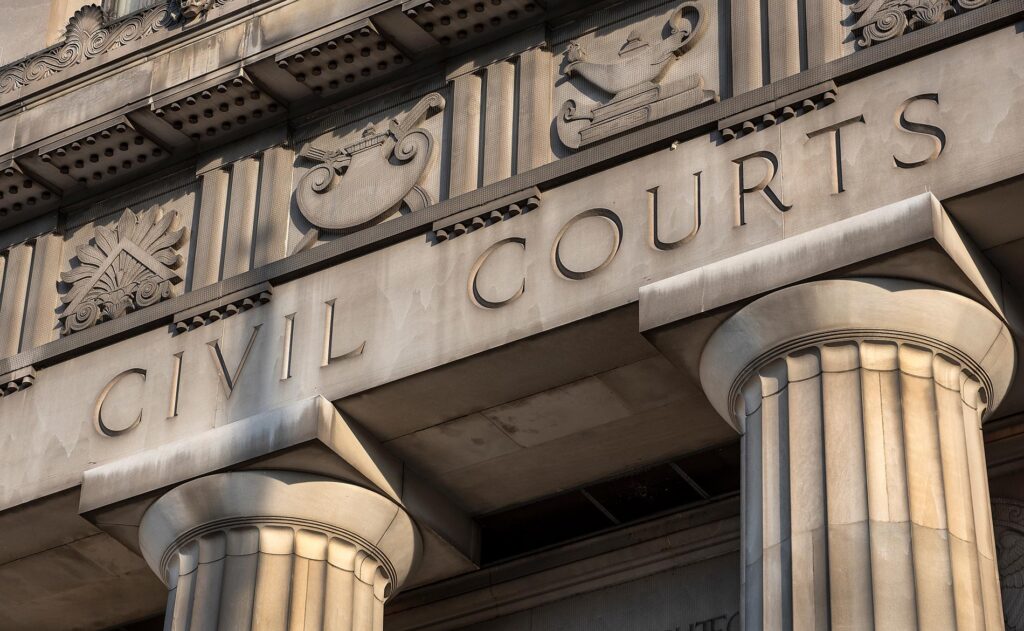
Whether you’re a prospective homebuyer or a savvy business owner, there is a lot to be gained by a civil record search. Pasco County, FL residents are no exception to this truth, and civil record searches can be done at a county, statewide, or federal level. But what exactly is a civil record search?
A civil record search is an important step in due diligence for any individual, business, or prospective homeowner. When you conduct a civil record search, you are looking for information that is related to the ownership of property or businesses, as well as other legal matters. There are four different types of civil record searches: lower court, upper court, federal civil court, and federal bankruptcy. In this article, we will discuss each type of search and why it’s important to conduct a civil record search before making any major decisions.
What Is a Civil Record Search?
Simply put, a civil record search is an investigation into a person’s history—particularly their financial and legal history—that may impact important decisions such as whether to hire someone, purchase a significant investment from someone, or trust someone with your business. Depending on the type of civil record search you are interested in, you may uncover everything from mortgage leans or tax disputes to personal injury claims.
Can You Search Court Records?
Depending on the state where you live, you will likely be able to access court records through contact with your local court clerk. This can include motions filed by individuals in a case, disposition records, official court transcripts, and more.
What's the Difference Between a Criminal Background Check and a Civil Search?
Basically, criminal background checks will uncover any crimes against the state under an individual’s name, whereas civil searches dredge up any cases brought to the local court by a wronged party or alleged victim that may involve the individual in question. The consequences of criminal cases involve fines or jail time, whereas civil court cases typically come with orders from the judge and fees. Civil court cases are considered less “rigorous” than their criminal court case counterparts, which must be proven “beyond a reasonable doubt.” If you’re really curious about a person’s history, however, your best bet is to conduct both a criminal background check and a civil search for a fuller portrait of their past.
What Kinds of Civil Record Searches Are There?
While civil records searches uncover information that is generally less serious or consequential than criminal background searches, there are varying degrees of civil record searches that may be done if you are interested in a thorough picture of a person’s past. The four types of civil record searches are lower court, upper court, federal civil court, and federal bankruptcy, detailed below.
Lower Court Civil Record Searches
Lower court civil records searches scour lower county court records for minor disputes or other relevant court information. The difference between upper and lower court record searches varies on a state-by-state basis and is determined by a financial ceiling that dictates whether or not a case goes to upper or lower court. This number can be as low as $2,500 or upwards of $20,000.
Upper Court Civil Record Searches
This is a popular choice for employers looking to hire applicants for roles requiring a certain level of responsibility, such as doctors, lawyers, executive directors, etc. An upper court civil record search looks for court cases that might have a bigger fallout than those taken care of at the lower court level—generally with more expensive consequences. This can include foreclosures, tax liens, debt collections, and even civil domestic violence.
Federal Civil Court Searches
This type of civil record search is conducted at the US District Court level, which scrutinizes any violations of federal regulations, including tax disputes, violations of civil rights, or interstate commerce. A federal civil court search can also uncover cases where larger financial institutions are involved.
Federal Bankruptcy Searches
As you may have guessed from the name, a federal bankruptcy civil search reveals any bankruptcies associated with the individual in question. Information gathered at this level includes the type of bankruptcy, the date filed and the discharge date, the file number, and the names listed as petitioners.
Why Conduct a Civil Record Search?
You don’t have to suspect someone of criminal activity to be inquisitive about their legal history. Whether you are interested in conducting a civil record search for personal, marital, real estate, non-profit, or business reasons, a civil records search will arm you with more information should you have a decision to make ahead of you. Some of the key benefits of civil record search include:
· Protecting your business, your finances, or other assets
· Complying with local laws or business regulations
· Making choices based on information rather than speculation
· Working or volunteering with qualified individuals
Civil Record Search Pasco County, FL
If you’re an employer or a business owner, it’s likely occurred to you to conduct a criminal background search before hiring an applicant—but if you want a more complete idea of your prospective employee or volunteer’s history, you’ll likely want to conduct a civil records search as well. Civil record searches are important for anyone looking to make a major purchase, whether it’s a home, a business, or another type of property. Conducting a civil record search can help you avoid making a costly mistake by doing business with someone who has a history of not paying their debts or becoming entangled in messy legal affairs.
If you’re looking for professional background screening services to conduct your civil record search Pasco County, FL, contact Alpha & Omega today or browse our list of services here!
